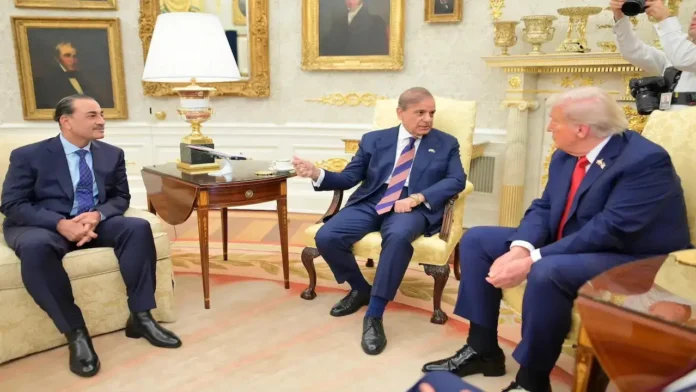The United States Embassy in Islamabad has issued a major clarification, dismissing recent reports that suggested Washington was supplying new air-to-air missiles to Pakistan. The embassy emphasized that there has been no transfer of new weaponry, asserting that the existing cooperation between the two nations remains limited to maintenance and sustainment support for previously approved defense systems.
In a strongly worded statement, the US mission said that Washington has not authorized any fresh sale or delivery of advanced missiles, and that the ongoing arrangements are purely logistical in nature. The clarification comes amid speculation triggered by reports that Pakistan had received new air-to-air missiles to bolster its F-16 fighter fleet. The embassy’s statement aimed to put an end to what it described as “misleading and inaccurate claims” circulating in sections of the media.
The US emphasized that any current defense-related activity with Pakistan falls within the framework of long-standing maintenance agreements. These are designed to ensure the safe and effective operation of existing American-origin equipment in Pakistan’s inventory, particularly the F-16 aircraft supplied decades ago. According to the embassy, these activities do not involve upgrades, new deliveries, or the supply of offensive capabilities.
This clarification carries strategic importance given the delicate balance of power in South Asia. India had earlier raised concerns over the potential supply of advanced US weaponry to Pakistan, arguing that such moves could upset regional stability. The US response appears intended to reassure New Delhi that Washington’s defense cooperation with Islamabad remains transparent and limited.
Defense analysts note that while Pakistan continues to operate a fleet of F-16s acquired in earlier decades, its ability to procure modern weapons systems has been constrained due to US export controls and regional sensitivities. The aircraft, though capable, are largely dependent on maintenance and spare parts support from American firms, which are strictly regulated.
The clarification also reflects the Biden administration’s cautious approach toward defense engagement with Pakistan, especially amid evolving strategic partnerships with India. The US-India relationship has deepened significantly under the Indo-Pacific framework, with growing defense cooperation in areas such as intelligence sharing, joint exercises, and technology transfer.
For Pakistan, however, the statement highlights the limits of its current defense ties with Washington. In recent years, Islamabad has increasingly turned toward China for new aircraft and missile systems, including the JF-17 Thunder and air-to-air missiles co-developed with Chinese defense industries.
In essence, the US Embassy’s clarification serves multiple purposes: it distances Washington from any suggestion of fresh military supply to Pakistan, reassures India about America’s regional commitments, and underscores the narrow scope of its current defense engagement with Islamabad.
As South Asia continues to navigate a complex geopolitical environment, the US appears intent on maintaining strategic transparency and avoiding misinterpretations that could lead to diplomatic friction. The latest statement makes it clear—there are no new American air-to-air missiles heading to Pakistan, only continued support for existing defense systems within previously agreed limits.



